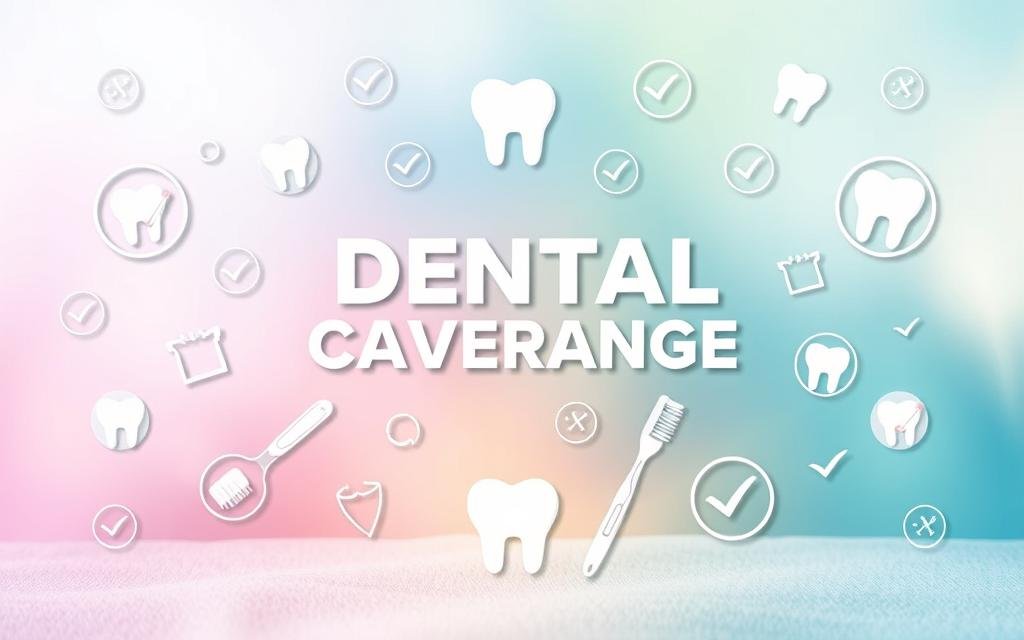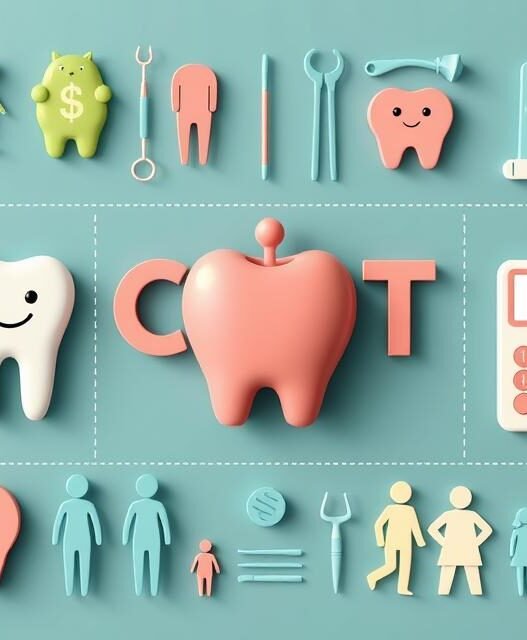Principal Dental Insurance has many plans to help keep your teeth healthy. These plans are affordable and cover a lot. They help avoid expensive dental problems later on.
They have a big network of dentists and offer great benefits. This means you get the care you need. We’ll look at what Principal offers, so you can choose the best plan for you and your family.
Understanding Principal Dental Insurance
Principal Dental Insurance has many plans to fit different needs. They offer a principal dental insurance overview that covers important services. This makes dental care affordable and easy to get.
Principal Dental Insurance provides a variety of plans designed to meet the diverse needs of individuals and families. With a clear overview of the types of coverage available, the principal ensures that important services—from routine check-ups to major procedures—fall within reach for many. This comprehensive approach not only emphasizes dental health but also demonstrates a commitment to making dental care accessible and affordable, ultimately encouraging regular visits to the dentist.
When evaluating the cost of principal dental insurance, it’s essential to consider both the premiums and out-of-pocket expenses associated with various plans. Principal Dental Insurance aims to offer competitive rates while ensuring that policyholders have access to quality care. By comparing different affordable dental plans, individuals can find an option that strikes the right balance between cost and comprehensive coverage, promoting better oral health without overwhelming financial burdens.
Moreover, understanding the nuances of principal products can also extend to life insurance, where terms like “what is the principal sum of life insurance?” come into play. This knowledge can be beneficial for those looking to secure their financial future as well as their dental health. Both dental and life insurance play crucial roles in safeguarding well-being, and by educating themselves on these types of coverage, policyholders can make informed decisions that benefit their overall health and financial security.
In conclusion, Principal Dental Insurance stands out as a valuable resource for those seeking reliable and affordable dental coverage. By prioritizing clarity and accessibility, it supports individuals in maintaining optimal dental health while also addressing the financial aspects of insurance. Whether navigating the complexities of dental plans or considering the broader implications of insurance products, prospective policyholders are encouraged to explore all options available to them.
Premiums and deductibles change with each plan. Premiums are the monthly fees for coverage. Deductibles are the costs you pay first before insurance helps.
Knowing about coverage limits is key. Each plan has a maximum amount for services in a year. This helps you plan for costs you might face.
Understanding principal dental insurance is essential for anyone looking to navigate the world of dental coverage effectively. When you obtain a principal dental insurance card, you gain access to a network of covered services that can significantly reduce your out-of-pocket expenses for various dental procedures. The principal dental care plans offer a range of options tailored to meet different needs, whether you require routine check-ups, emergency procedures, or specialized treatments.
One crucial aspect to consider is the coverage limits associated with your plan. Knowing these limits helps you understand how much the insurance will contribute to dental services within a given year. Each plan typically has a maximum amount that it will pay for treatments, which can guide you in planning for costs that may arise, especially if you anticipate needing extensive work done. This understanding also empowers you to make informed decisions about treatment options, ensuring that you stay within your budget while receiving the necessary care.
Moreover, it’s important to grasp the concept of the indemnity principle. So, what is the aim of the indemnity principle? This principle ensures that policyholders are compensated for their losses up to the insured amount without profiting from the situation. In the context of dental insurance, it means that while your plan may cover a significant portion of your dental expenses, it is designed to restore you to the financial position you were in before you incurred these expenses—not to provide a profit. As such, it encourages responsible use of dental services and discourages overutilization.
Navigating the intricacies of principal dental insurance can sometimes feel overwhelming, but arming yourself with knowledge about your coverage, limits, and underlying principles can make a substantial difference. By understanding your options and the implications of your plan, you’re better equipped to manage your dental health and expenses effectively. Ultimately, being proactive in your approach to dental care ensures that you can take full advantage of what principal dental insurance has to offer.
A principal is known for great customer service in dental insurance. This makes people feel safe and supported with their dental care.
| Plan Type | Premium Range | Deductible Range | Coverage Limit |
|---|---|---|---|
| Individual Plan | $20 – $50/month | $50 – $150/year | $1,000 – $2,000/year |
| Family Plan | $40 – $100/month | $100 – $300/year | $2,000 – $4,000/year |
Benefits of Dental Insurance
Dental insurance is great for people and families. It helps them make smart choices about health care. It also gives them access to many services that keep teeth healthy and avoid expensive treatments later.
Comprehensive Coverage Options
Principal dental insurance has many plans. These plans cover important services like:
- Preventive care such as routine cleanings and check-ups
- X-rays for early detection of dental issues
- Basic procedures, including fillings and extractions
- Major services like crowns, bridges, and root canals
These plans help people take care of their teeth. This way, they avoid expensive treatments later.
Financial Protection Against High Costs
Dental insurance also protects your wallet. Dental treatments can be very expensive. But with insurance, you only pay a little bit. This makes it easier to get the dental care you need without breaking the bank.
What Does Principal Dental Insurance Typically Cover?
Principal Dental Insurance has many options to fit different needs. It’s important to know what it covers. It includes preventive, basic, and major services. Each helps keep your teeth healthy and fixes dental problems.
Preventive Services
Preventive dental care is key to keeping your mouth healthy. It stops bigger problems later. This includes:
- Routine dental exams
- Professional cleanings
- X-rays
- Fluoride treatments
- Sealants
Many plans focus on preventive care. They say regular dentist visits are smart and save money in the long run.
Basic and Major Services
Principal Dental Insurance also covers basic and major services. Basic services are for simple fixes like:
- Fillings for cavities
- Extractions
- Root canals
Major services are for more complex issues. They include:
- Crowns
- Bridges
- Dentures
- Oral surgeries
This wide coverage helps avoid big dental bills. It lets you plan better and feel more secure.

| Coverage Type | Examples | Importance |
|---|---|---|
| Preventive Services | Exams, Cleanings, X-rays | Prevents dental issues and reduces future costs |
| Basic Services | Fillings, Extractions | Treats common dental problems effectively |
| Major Services | Crowns, Dentures | Covers complex procedures to restore functionality |
Choosing the Best Dental Insurance Plan
Finding the right dental insurance can feel like a big task. Start by thinking about what you need. Do you need regular check-ups, fillings, or more serious treatments?
Think about your budget too. Look at the costs of premiums, deductibles, and maximums. Some plans might cost less but have higher deductibles. Always check the total costs, including any extra fees.
It’s also important to check the provider network. Make sure your favorite dentists are in the plan. This way, you can get the care you need and use your insurance well.
Choosing the best dental insurance plan requires careful consideration of several factors to ensure that you receive the most value for your investment. One of the primary elements to explore is the extent of coverage provided by various plans. Many individuals assume that all dental insurance options are created equal, but there can be significant differences in terms of what treatments are covered, the frequency of visits allowed, and any limitations on specific dental procedures. By assessing these elements, you can identify the most comprehensive and suitable policy for your dental health needs.
Additionally, it’s wise to evaluate the costs associated with each plan. While some might be advertised as the best dental insurance plan based on coverage, it’s crucial to factor in potential out-of-pocket expenses, including extra fees for procedures that may fall outside the standard coverage. Analyzing the overall cost structure will empower you to make informed decisions. Affordable dental insurance options are often available, but these plans should not compromise the quality of care you receive. Being diligent in your research can help you distinguish between a deal that saves you money and one that offers inadequate support.
Provider networks also play a vital role in selecting the best dental insurance company. Insurance plans typically limit coverage to a certain list of dentists, so it’s essential to confirm that your preferred dental care providers are included in the network. Choosing a plan that allows you to visit your trusted dentists will not only ensure continuity of care but will also help you maximize the benefits of your insurance. When you find a plan that meets both your coverage needs and your provider preferences, you are much more likely to have a positive experience with your dental insurance.
In summary, the right dental insurance plan can significantly impact your oral health and financial well-being. By thoroughly researching your options, evaluating coverage, considering additional costs, and checking provider networks, you can make an informed choice that aligns with your specific needs. Ultimately, investing time in this process will help you secure a dental insurance plan that offers peace of mind and efficient access to necessary dental care.
When you compare plans, pay attention to what’s covered. Look for plans that cover both regular care and big treatments. Also, check the limits for each type of service.
Online tools can help you compare plans easily. They let you see different options side by side. This makes it easier to find the best plan for you.
In short, picking the right dental insurance is about your health needs, budget, who you want to see, and what’s covered. With careful research, you can find a plan that’s good for your teeth and wallet.
| Factors to Consider | Importance Level | Key Questions |
|---|---|---|
| Coverage Requirements | High | What services do I need coverage for? |
| Budget Constraints | High | What can I comfortably spend on premiums? |
| Provider Networks | Medium | Are my preferred dentists in the network? |
| Comparative Analysis | Medium | How do the plans differ in premiums and coverage limits? |
Principal Dental Insurance Coverage Details
It’s important to know what dental insurance covers. Plans for individuals and families differ. This affects how much you pay for dental care. Some plans are made for specific jobs, like teaching.
When considering dental insurance coverage, Principal Dental Insurance stands out for its comprehensive plans tailored to meet various needs. The coverage details can vary significantly, especially when it comes to major dental procedures like implants. A common question among potential beneficiaries is, “Does Principal dental insurance cover implants?” Generally, this form of insurance does offer coverage for dental implants, although the extent of coverage may depend on the specific plan you choose. It’s crucial to carefully review your policy documents or consult with a representative to understand the specifics related to waiting periods, deductibles, and co-pays.
Principal Dental Insurance offers a variety of plans designed to meet the diverse needs of individuals and families seeking dental coverage. One common question among potential policyholders is whether Principal Dental Insurance covers implants. Generally, dental implants are considered a major procedure and may or may not be included in your coverage, depending on the specific plan you choose. It’s advisable to read your policy documents carefully or reach out to a customer service representative to clarify whether implants are covered, along with any relevant waiting periods.
When it comes to dental insurance, one might also wonder who provides indemnity insurance. Indemnity insurance allows policyholders greater flexibility when choosing dental care providers, as it often permits them to visit any dentist they prefer without being restricted to a specific network. This option is ideal for individuals who value the freedom to choose specialists or who want to maintain long-term relationships with their dental care providers. Principal Dental Insurance does offer indemnity plans, which can be an advantage for those seeking more control over their dental care decisions.
In the realm of dental insurance, the most common form tends to be Preferred Provider Organizations (PPOs). PPOs offer a balance between cost savings and provider choice, allowing policyholders to receive dental care from a network of preferred providers at a discount. However, going outside the network is usually an option, albeit at a higher out-of-pocket cost. Understanding the distinctions between these types of dental insurance plans can lead to a more informed decision tailored to your dental health needs while keeping your budget in check.
Understanding the value of dental implants is essential for those contemplating this significant investment in their oral health. Many dental professionals argue that dental implants are worth it because they not only restore the function of your teeth but also enhance your appearance and contribute to long-term oral health. Implants help maintain jawbone structure, preventing further dental issues that can arise from missing teeth. When insured with a provider like Principal, the financial assistance available for these procedures may lessen the burden, making it a viable option for many people.
However, it’s not just Principal Dental Insurance that individuals must navigate. In the world of dental insurance, terminology and clauses also play crucial roles. For instance, many are curious about the policies of other providers, such as MetLife. A frequently asked question is, “Does MetLife have a missing tooth clause?” This clause can significantly impact coverage, especially for those considering implants after losing teeth. Understanding these details can help you make more informed decisions about your dental health and financial investments in treatments, allowing for a comprehensive approach to maintaining your smile.
Individual and Family Plans
Individual plans cover one person. Family plans cover more. They often include:
- Preventive Care: Routine check-ups and cleanings are usually free or low cost.
- Basic Restorative Services: Fillings and extractions are covered after a wait.
- Major Services: Crowns, root canals, and dentures cost more.
Employee Benefits for Educators
Teaching staff get special dental insurance. It has benefits like:
- Flexible Coverage Options: Plans fit different dental needs and family sizes.
- Increased Coverage Limits: More money for dental care because of teaching.
- Customizable Plans: You can add services based on your health needs.

Comparing Top Dental Insurance Providers
Finding the right dental insurance can be hard. When we look at different providers, we need to think about a few things. These include how happy customers are, what services are covered, how much it costs, and how easy it is to file claims.
When comparing top dental insurance providers, it’s essential to consider various factors that can significantly impact your overall experience. Customer satisfaction plays a crucial role in determining which provider might best suit your needs. Reviews often highlight important aspects such as the quality of customer service, the efficiency of processing claims, and the ease of navigating each provider’s website. Additionally, understanding what services are covered is vital. Some major dental insurance providers may offer extensive coverage that includes preventive care, while others might focus on specific treatments, such as cosmetic dentistry or orthodontics.
Cost is another significant factor to examine when choosing a dental insurance provider. Monthly premiums can vary widely depending on the coverage levels and the specific services included. It’s important to perform a detailed price comparison and consider not only the premiums but also any deductibles, copayments, and maximum coverage limits. This comprehensive approach will help you identify the best financial fit for your situation, especially if you’re looking to address substantial dental needs, such as determining who is most qualified for dental implants.
Beyond just dental insurance, it’s worth noting how other types of insurance can also intertwine with your healthcare decisions. Many individuals might find themselves considering life insurance products alongside their dental care needs. In this regard, understanding what are two types of life insurance—term life and whole life—can be beneficial. While life insurance may not directly influence your dental insurance choice, being informed about overall financial protection can help you gauge how all these different insurance products fit into your long-term plans.
Ultimately, the key to choosing the right dental insurance provider lies in evaluating your personal circumstances and health needs. Take the time to research various options, read customer testimonials, and consult with experts if necessary. Armed with comprehensive knowledge and a clear understanding of your priorities, you can make a well-informed decision that best supports your dental health journey.
When comparing top dental insurance providers, it becomes essential to evaluate customer satisfaction, the range of services covered, costs, and the claims process. Customer reviews can give insights into the quality of care and the provider’s responsiveness in handling issues. A well-rounded plan should cover preventive services like routine cleanings and check-ups, as well as more extensive procedures like fillings and root canals. It’s important to analyze the cost of premiums alongside what services are included to ensure you are getting the best value for your investment.
Additionally, understanding how easy it is to file a claim can greatly affect your overall experience with a dental insurance provider. A streamlined, user-friendly claims process can save time and reduce the stress of unexpected dental expenses. Providers that offer online claim submission or mobile app access tend to be more appealing to customers who value convenience and quick turnaround times.
While dental insurance is about managing oral health costs, it can sometimes be compared to other types of insurance in terms of underlying principles. For example, when considering “What is life insurance with an example?” it can help clarify how insurance functions to mitigate financial risk. Just as life insurance provides a safety net for loved ones in the event of an untimely passing, dental insurance protects individuals from the high costs of dental procedures.
Ultimately, the best dental insurance provider for you will depend on your unique needs and budget. Researching various plans and understanding “what are insurance principles?”—including risk assessment, coverage limits, and the importance of policy exclusions—will give you the knowledge needed to choose a provider that offers both reliability and peace of mind when it comes to your dental health.
Companies like Principal Dental Insurance, Delta Dental, and Cigna have their own good points and not-so-good points. Knowing what each offers helps us pick the best one for our dental needs.
| Provider | Customer Satisfaction Rating | Coverage Options | Cost-Effectiveness | Claims Process Efficiency |
|---|---|---|---|---|
| Principal Dental Insurance | 4.5/5 | Preventive, Basic, and Major Services | Affordable premiums | Fast claims processing |
| Delta Dental | 4.3/5 | Comprehensive and Specialty Care | Reasonable costs | Quick claim turnaround |
| Cigna | 4.2/5 | Preventive and Major Services | Competitive pricing | Streamlined claims process |
Looking at these details helps us make a smart choice for our dental health. Each company has its own strong and weak points. So, it’s key to really look at all our options before picking a plan.
How to Get a Quote for Principal Dental Insurance
Getting a quote for dental insurance is easy. Start by using online estimators on insurance websites. These tools let you input your info and get quotes fast.
Getting a quote for Principal Dental Insurance can be a straightforward process if you know where to start. Many insurance companies, including Principal, provide online estimators that allow you to input your personal information, such as age, location, and dental history. This information helps create a tailored quote that fits your unique needs. By taking advantage of these digital tools, you can save time and quickly compare different plans to find the one that suits you best. It’s important to review the coverage details thoroughly, especially if you’re considering dental implants, which many people wonder about when researching insurance options. Addressing common concerns like “Are dental implants safe?” can also help inform your decision as you weigh your options.
In addition to online quotes, you can also reach out to insurance agents who specialize in dental coverage. They can guide you through various flexible dental insurance options tailored to your needs. When speaking with an agent, it’s a good idea to ask specific questions such as, “Who is the principal in insurance?” as this refers to the entity or person that ultimately holds the insurance policy. Understanding the role of the principal helps clarify your responsibilities and rights within the insurance contract, which is essential for making informed choices.
After gathering quotes, make sure to compare not just the premiums but also the benefits, exclusions, and waiting periods associated with the plans. This initial research will help you understand what you can expect from your coverage and whether it aligns with your dental care needs. While dental insurance can often feel overwhelming, taking a structured approach can simplify the process. Always remember to inquire about any specific coverage for dental procedures you may need, particularly if you’re considering more advanced options like implants.
Ultimately, securing a quote for Principal Dental Insurance doesn’t have to be a daunting task. With the right resources and guidance, you can navigate your options confidently, ensuring that you choose a policy that protects your smile and your financial well-being. Whether through online platforms or personal consultations, make sure to gather all the necessary information to make an informed decision about your dental health.

For a quote that fits you, talk to an insurance agent. They can give you a quote based on your dental needs. Make sure to have your info ready, like:
- Personal details such as age and location
- Current dental health status and any ongoing treatments
- Preferred coverage options and budget considerations
To get accurate quotes, gather important documents. Things like dental records or current policy details help agents give better quotes.
| Method | Pros | Cons |
|---|---|---|
| Online Estimators | Quick results, user-friendly | Limited personalization |
| Contacting an Agent | Tailored quotes, expert advice | May take longer |
By trying different ways to get a quote, you can choose the best dental insurance. Being proactive helps you plan your finances better and feel secure about your dental health.
Principal Dental Insurance for Individuals
People looking for dental insurance have many choices. These plans are made just for you. It’s important to know what’s covered and how much it costs.
People looking for dental insurance have many choices. Principal dental insurance is a popular option that offers a variety of plans catering to individuals with different dental needs. Understanding the principal dental insurance coverage details is crucial for anyone considering this type of insurance. These details outline what procedures are covered, such as routine check-ups, cleanings, fillings, and even more extensive treatments like root canals or crowns. Additionally, potential policyholders should familiarize themselves with the premiums, deductibles, and any limitations or exclusions associated with the coverage.
When delving into the world of insurance, it’s essential to understand the underlying concepts. For instance, what are the principles of insurance? Essentially, these principles guide how insurance companies assess risk and determine premiums. They include concepts such as indemnity, which ensures that the insured is compensated for their loss without profiting from it, and insurable interest, which requires the insured to have a stake in the property or health being insured. When purchasing principal dental insurance, individuals should keep these principles in mind to make informed choices that align with their healthcare needs.
Furthermore, knowing the principal sum amount of insurance can play a significant role in selecting the right plan. This amount refers to the maximum benefit that an insurer will pay for covered services during a policy period. Understanding how this amount applies to dental care is vital since it establishes a limit on the financial assistance you can expect when seeking treatments. Awareness of these key factors can empower individuals to navigate through their options effectively, ensuring they choose a dental insurance plan tailored to their unique dental health needs and financial situation.
Coverage Options and Pricing
Principal dental insurance offers many options. It covers things like:
- Preventive services such as exams and cleanings
- Basic services, including fillings and extractions
- Major services like crowns, bridges, and dentures
Prices change based on the plan you choose. Some plans cost more, some less. Here’s a table showing some prices:
| Plan Type | Monthly Premium | Deductible | Annual Maximum Benefit |
|---|---|---|---|
| Basic Plan | $25 | $50 | $1,000 |
| Comprehensive Plan | $45 | $100 | $2,000 |
| High-End Plan | $70 | $0 | $5,000 |
Eligibility Requirements
It’s key to know who can get dental insurance. Usually, you must:
- Be at least 18 years old
- Live in the area where the insurance is offered
- Not have dental problems before getting insurance
Talking to an insurance expert can help. They can guide you to the best dental insurance for you.

Dental Insurance Plans for Families
Families look for dental insurance that’s good for everyone and doesn’t cost too much. Dental insurance for families has special features. It includes discounts, helps with care coordination, and covers kids.
When it comes to dental care, families often face unique challenges that make choosing dental insurance a critical decision. Dental insurance plans designed specifically for families typically offer a variety of features tailored to meet the needs of both adults and children. These plans often include discounts on preventive care, such as cleanings and check-ups, which can help maintain oral health for all family members. Additionally, these plans frequently provide care coordination to ensure even the youngest members receive necessary treatments in an organized manner, ultimately promoting a healthier smile as children grow.
Budget plays a significant role when selecting dental insurance, but it’s essential to assess how well the plan can accommodate the dental needs of the entire family. Many plans include preventive services at no additional cost and have low co-pays for necessary procedures. This not only eases financial burdens but also encourages families to seek regular dental check-ups. It’s also wise to consider the maximum annual coverage limits, as this can significantly impact the overall value of the plan. For families contemplating any necessary dental work, understanding the plan’s coverage can make all the difference in managing expenses.
In some cases, families may need to consider extensive treatments such as dental implants. This leads to the question, “Why are dental implants worth it?” While the upfront costs can be higher compared to other restorations, dental implants can be a worthy investment for long-term oral health due to their durability and effectiveness. They help restore a natural smile and function and preserve the jawbone, preventing further dental issues down the line. If a dental insurance plan includes coverage for such procedures, it can significantly alleviate costs and provide families with valuable options to ensure comprehensive care.
Ultimately, navigating dental insurance plans requires careful consideration of your family’s specific needs. As you weigh the options available, focus on plans that provide comprehensive coverage while remaining cost-effective. With the right dental insurance, families can enhance their quality of care, ensuring that everyone receives the dental attention they deserve without compromising their budget.
Family dental plans are great because they let everyone get care under one policy. This makes things easier and cheaper for families. They get:
- Family discounts: When everyone is on one plan, it’s cheaper.
- Coordinated care: Families can see the dentist together, which is less messy.
- Inclusive coverage: Kids get all the care they need, from check-ups to fillings.
Here’s a table that shows what different family dental plans offer:
| Plan Type | Coverage for Adults | Coverage for Children | Typical Discounts |
|---|---|---|---|
| Basic Family Plan | Preventive and basic services | Full preventive coverage | 10-20% off common procedures |
| Comprehensive Family Plan | Preventive, basic and major services | Full coverage, including orthodontics | 20-30% off procedures |
| Exclusive Family Plan | Customizable options | Enhanced services and special coverage | Up to 40% off various services |
Families can keep dental costs down and make sure everyone gets the care they need. With the right plan, dental health is affordable for everyone.
Principal Dental Insurance: Plan Types and Features
When looking at dental insurance, it’s key to know the difference between comprehensive and supplemental plans. Each has its own role and can fit different needs. Comprehensive plans cover a lot of dental services to keep your mouth healthy. Supplemental plans add extra benefits to what your primary insurance doesn’t cover.
Principal dental insurance providers offer a range of plan types tailored to meet the diverse needs of individuals and families seeking dental care. These plans generally fall into two categories: comprehensive and supplemental. Comprehensive plans are designed to cover a wide array of dental services, ensuring that individuals can maintain optimal oral health without incurring excessive out-of-pocket expenses. From routine check-ups and cleanings to major procedures such as crowns and bridges, comprehensive dental insurance helps to minimize the financial burdens associated with necessary dental care.
For those who already have primary dental insurance, supplemental plans provide an additional layer of coverage, addressing gaps in benefits that may exist. This is particularly useful for individuals looking for more robust coverage for specific treatments, such as orthodontics or cosmetic procedures. Principal dental insurance for individuals is structured to offer flexibility in choosing the level of coverage, allowing clients to customize their plans according to personal dental health needs and financial situations. This adaptability makes it easier for insured individuals to budget for both preventive care and unexpected dental emergencies.
As patients navigate their options, it’s common to encounter questions about specific coverage details, such as “does Delta Dental Missouri cover implants?” Understanding the nuances of your dental plan is essential for making informed decisions. Some plans may cover dental implants, which are often seen as a long-term solution for missing teeth, while others may have restrictions or exclusions. It is beneficial for policyholders to thoroughly review their insurance documents or consult with their insurance representative to gain clarity on what procedures are covered and any associated waiting periods or limitations.
In summary, navigating the landscape of principal dental insurance requires an understanding of the different plan types and features available to consumers. Whether someone is seeking comprehensive coverage for ongoing dental health or supplemental options to enhance current benefits, the choices are plentiful. Ultimately, having the right dental insurance can alleviate financial stress and ensure access to necessary dental care, ensuring that individuals prioritize their oral health with confidence.
Comprehensive vs. Supplemental Plans
Comprehensive dental plans cover many services to keep your teeth and gums healthy. These include:
- Preventive care, like check-ups and cleanings
- Basic services, like fillings and tooth extractions
- Major services, like crowns, bridges, and dentures
- Orthodontics, which some plans offer
Supplemental dental insurance, on the other hand, is for extra protection. It’s great for those who want to pay less for certain dental work. Key benefits include:
- Coverage for services not in comprehensive plans
- Lower costs for specific dental procedures
- Flexibility to pick services based on your dental needs
| Plan Type | Coverage Includes | Ideal For |
|---|---|---|
| Comprehensive Dental Plans | Preventive, Basic, and Major Services | Individuals seeking full dental coverage |
| Supplemental Dental Insurance | Add-on coverage for services not covered by comprehensive plans | Those who want extra protection on top of existing insurance |
Knowing the differences helps you choose the right plan for your dental health. Whether you pick comprehensive plans or add supplemental insurance, the right choice is key for your teeth.
When it comes to navigating dental insurance, understanding the landscape of comprehensive and supplemental plans is essential to ensuring your oral health is well-protected. Comprehensive dental insurance plans are designed to cover a wide array of services, including routine check-ups, cleanings, fillings, and even major procedures like root canals and crowns.
These plans offer a robust framework for managing dental care costs, providing policyholders with peace of mind knowing that most dental expenses will be covered. On the other hand, supplemental plans serve as an additional layer of coverage that can help offset out-of-pocket costs for procedures not fully covered by a primary plan. This flexibility allows individuals to tailor their approach to dental health based on their specific needs and preferences.
Many people wonder about specific coverage details when selecting insurance, such as “Does Delta Dental Missouri cover implants?” The answer can vary depending on the specific plan and its terms. Some comprehensive plans may include coverage for implants, while others might place limits or require a waiting period. It’s crucial for potential policyholders to thoroughly review their plan options and consult with their insurance provider to understand what services are included and any potential exclusions. This diligence can save not only money but also heartache in navigating surprise expenses in the future.
Moreover, the choice of insurance type can also be influenced by economic principles like the principal-agent problem in insurance. This concept refers to the challenges that arise when a policyholder (the principal) and the insurance company (the agent) have different interests. For instance, an insurance provider might be inclined to minimize claims payouts while the policyholder seeks maximum coverage for their dental needs. Understanding this dynamic can help consumers better navigate their options and select plans that align with their oral health priorities. Ultimately, being informed about the nuances of comprehensive versus supplemental plans empowers individuals to make decisions that best serve their long-term dental care goals.
In the end, selecting the right dental insurance—whether comprehensive or supplemental—boils down to a careful assessment of personal needs, plan specifics, and potential pitfalls. By taking the time to research these options and understanding the implications of coverage decisions, individuals can forge a path toward lasting dental health while effectively managing their financial investment in insurance.
Understanding Insurance Terms: What’s the Principal in Insurance?
Understanding insurance terms is key to making smart choices. The term “principal” is very important. It means the main amount covered or the core of a policy.
Understanding insurance terms is key to making informed choices, and one of the most fundamental concepts in this realm is the term “principal.” In the context of insurance, the principal can refer to different aspects depending on the type of insurance in question. When pondering “who is the principal in insurance?” one might consider that it typically denotes the primary parties involved in the contract, such as the policyholder and the insurer. Clarifying this relationship is essential, as it helps delineate the responsibilities and benefits guaranteed under the terms of the policy.
Moreover, when discussing “what is principal life insurance?” it often refers to the main sum assured that beneficiaries receive in the event of the insured’s death. This amount is crucial as it provides financial security for loved ones left behind, ensuring they can maintain their standard of living and meet future financial obligations. Understanding this aspect of life insurance allows individuals to determine the appropriate coverage needed based on their unique financial circumstances and goals.
Additionally, the concept of the principal also ties into broader principles governing insurance practices, such as the principle of utmost good faith. So, what is the principle of utmost good faith in insurance? This principle requires both parties in the contract—the insurer and the insured—to act honestly and not mislead or withhold critical information from one another. For example, when applying for insurance, the applicant must disclose all relevant health information that might influence the insurer’s decision. In essence, understanding the principal in insurance-related terms helps navigate the often complex world of insurance and ultimately enables better decision-making for personal and financial security.
This main amount is crucial for knowing how much you’re covered for. It helps you understand what you might get back if something happens.
The amount covered can change based on the insurance type. For dental insurance, it might cover things like check-ups or big dental work. Knowing this helps you pick the right plan.
When diving into the world of insurance, understanding key terms is crucial for making informed decisions. One such term is “the principal.” But who is the principal in insurance? Essentially, the principal refers to the primary party responsible for an insurance policy, typically the insured individual or entity. This term can be a bit confusing as it also relates to the legal aspects of contracts, where the principal can be viewed as the primary party entering into an agreement with an insurer. Clarifying this term helps individuals navigate their obligations and rights under various insurance policies.
Another common concern in the realm of insurance is specific coverage details, such as dental plans. For instance, a frequently asked question is, “Does Delta Dental USA cover implants?” This inquiry highlights the importance of understanding what specific treatments or procedures are included in your insurance coverage. Most dental insurance plans offer various levels of coverage, and knowing whether essential services like implants are covered can significantly impact one’s financial planning for dental health. It’s always wise to carefully review a specific policy’s terms to ensure that it aligns with your dental needs.
In addition to understanding general insurance concepts, it’s beneficial to explore the various types of policies available. One such policy is the principal umbrella policy, which provides extra liability coverage beyond the limits of existing policies. This is particularly advantageous for individuals looking to safeguard themselves against potential lawsuits or significant financial losses. Thus, grasping the nuances of the principal in an insurance context, as well as things like umbrella coverage and specific plan details, can empower consumers to make the best possible choices for their insurance needs. It ultimately leads to better protection and peace of mind.
When navigating the sea of insurance terminology, understanding the role of the principal in insurance is crucial. In any insurance contract, the principal is typically the party that owns the policy and is responsible for paying the premiums. This person or entity has the power to make decisions related to the policy, including claims and benefits. So, when you ask, “Who is the principal in insurance?” the answer often points to the primary policyholder who is financially invested in the agreement. This responsibility can apply to various types of insurance, including health coverage, vehicle insurance, and even dental plans.
When delving into specific types of insurance, such as dental coverage, it’s important to recognize how these terms translate into practical benefits. For instance, many individuals consider concerns like “are dental implants painful?” when weighing their options for care. Understanding your dental plan—be it basic or comprehensive—can help alleviate these worries. Increasingly, insurance providers are offering plans that cover a range of procedures, including implants, which can be a significant financial relief for those in need of restorative work.
Choosing the best dental plans often goes beyond just the principal’s responsibilities; it encompasses understanding the coverage limits, co-pays, and exclusions. For instance, some plans might fully cover routine check-ups but only partially cover more extensive procedures like implants. Evaluating your options based on these details ensures that you select a plan that meets your needs, particularly if you anticipate requiring significant dental work in the future. Ultimately, informed decisions regarding your dental coverage can lead to better long-term oral health outcomes and financial satisfaction.
Knowing insurance terms helps you compare plans better. If you’re looking at dental insurance, knowing about the principal is important. It helps you make a choice that fits your needs.
Harley Davidson Insurance: 3 Essential Plans Road Protection
Always look at how the principal works with other costs like deductibles and co-pays. This ensures you get the best coverage.
When navigating the world of insurance, understanding the terminology and concepts is crucial for making informed decisions. One frequently asked question is, “Who is the principal in insurance?” In insurance terms, the principal generally refers to the primary party involved in the insurance contract. This typically includes the insured, who is the individual or entity seeking coverage, and the insurer, the company providing the protection. Recognizing who the principal is can clarify roles and responsibilities within the policy, which can lead to a smoother claims process and overall experience.
Another essential concept in insurance is the aim of the indemnity principle. This principle seeks to ensure that the insured is compensated fairly in the event of a loss without experiencing any profit from the claim. Essentially, the aim of the indemnity principle is to restore the insured to the financial position they were in before the loss occurred. It prevents the insured from profiting at the expense of the insurer and maintains the integrity of the insurance system. Understanding this principle is vital for policyholders as it defines the extent of their coverage and potential claims.
Insurance can often feel like a maze of terminology, with one of the fundamental concepts being the “principle” in various contexts. At its core, understanding what the principal clause in insurance is provides clarity on how coverage works and what policyholders can expect during the claims process. The principal clause typically outlines the main responsibilities and rights of both the insurer and the insured, guiding the interactions and transactions throughout the insurance lifecycle. Familiarity with such terms is essential, as they set the groundwork for navigating the complexities of insurance agreements.
One of the core principles in insurance is the principle of indemnity. To put it simply, this principle aims to ensure that policyholders are restored to the financial position they were in before a loss occurred, without providing them with a windfall. So, what are some examples of the principle of indemnity? If a homeowner suffers damage due to fire, their insurance should cover the cost of repairs, limiting the payout to the actual loss incurred rather than giving them an amount exceeding the damage. This protects the insurance system from loss and fraud while promoting accountability among policyholders.
In more specific contexts, such as dental insurance, the principles might also adjust according to particular coverage limits. For instance, many policies may impose a cap on the maximum number of dental implants covered within a given time frame or policy period. This limitation helps insurers manage their risk exposure and maintain a sustainable coverage model. Policyholders should be aware of such constraints, since understanding the specific terms linked to their policy becomes crucial when planning for costly procedures. Thus, having an in-depth grasp of insurance terms not only facilitates informed decisions but also aids in effectively utilizing one’s policy to its fullest potential.
Moreover, the principle of subrogation plays a critical role in the insurance landscape. Subrogation allows insurers to pursue third parties that may be responsible for a loss after compensating the insured. This means that if an insurer pays a claim, they can seek reimbursement from the party at fault, thus protecting their interests and keeping premiums lower. Recognizing the principle of subrogation is important for policyholders, as it can affect the outcomes of claims and the dynamics between involved parties. By grasping these foundational concepts, individuals can navigate their insurance options more effectively and choose coverage that best meets their needs.
Understanding the principal is key when looking at insurance options. It helps you talk to insurance companies better. This can save you money and give you peace of mind.
Affordability of Principal Dental Insurance
Dental insurance costs are important for people and families to manage their health expenses. Principal Dental Insurance has different plans with various prices and coverage. It’s key to know the cost of each plan before choosing.
Affordability of dental insurance is crucial for individuals and families seeking to manage their health expenses effectively. Principal Dental Insurance offers an array of plans tailored to fit diverse budgets and needs, making it essential for potential policyholders to carefully evaluate the costs associated with each option. The benefits of dental insurance extend beyond just preventive care; many plans also cover essential procedures that can add up in price without insurance. Understanding how much you can afford and what services are covered will help you make informed decisions about your dental health.
read Cyber Insurance Coverage Silverfort: 5 Protect Your Data
When examining the affordability and coverage of dental insurance options, it’s important to consider specific details about the plans. For instance, some may have waiting periods or limited coverage for certain treatments, which can impact their overall value. Additionally, one might wonder what the difference is between the principle of indemnity and the principle of contribution. The principle of indemnity ensures that insurance payouts do not exceed the actual loss, while the principle of contribution applies when multiple insurance policies are in place, preventing over-compensation. Both concepts help clarify the way policies are structured and can influence which plan might be the most beneficial for your situation.
When it comes to selecting insurance, many people often ask, “What is the best dental insurance?” This question is subjective and can vary depending on individual needs and financial situations. Factors like the network of dentists, types of covered services, and overall premium costs can greatly influence one’s choice. Therefore, it’s advised that families compare different Principal Dental Insurance plans, considering both short-term costs and long-term benefits. By doing thorough research and asking key questions, policyholders can find a dental insurance plan that not only fits their financial situation but also meets their healthcare needs effectively.
We will look at the costs of these plans. This includes premiums, deductibles, and what you pay out of pocket.
about read GAINSCO Auto Insurance: 4 Affordable Coverage Options
When searching for affordable dental insurance plans, it’s essential to weigh the various prices and coverage options available. Many people assume that affordable plans mean sacrificing quality care, but this isn’t necessarily the case. The key is to understand the cost structure of each plan, which typically includes premiums, deductibles, and out-of-pocket expenses. By comparing these details across different plans, individuals can find a suitable option that meets both their budget and their dental needs.
One aspect to consider when evaluating dental insurance is whether a principal’s indemnity extension is included. This extension can offer broader coverage for certain services that may not be fully covered under standard plans, thereby potentially reducing overall out-of-pocket costs. However, figuring out whether this extension is worth the extra premium is crucial. Placing emphasis on the kind of dental care you anticipate needing can help make this decision clearer.
It’s also important to clarify the concepts of indemnity and insurance when researching dental plans. Many people ask, “Is there a difference between indemnity and insurance?” The short answer is yes, and understanding this distinction can influence your choice. Insurance plans typically provide more flexibility in choosing providers and can cover services after a deductible is met, while insurance often involves more direct relationships with a network of dentists. Weighing the pros and cons of each type can guide you toward a plan that addresses your specific dental requirements without breaking the bank.
Ultimately, finding an affordable dental insurance plan hinges on thorough research and an understanding of what each plan offers. By focusing on costs, coverage, and specific features such as indemnity extensions, consumers can make informed choices that best suit their needs and budgets.
Cost Comparisons for Different Plans
When looking at Principal dental insurance prices, comparing costs is important. Each plan has different prices. Basic plans might be cheaper but offer less coverage. More expensive plans cover more services.
It’s important to think about deductibles and what you pay out of pocket too. Some plans have higher deductibles. This can make it harder to get dental care. By looking at these costs, you can pick a plan that fits your budget and meets your dental needs.
When considering different insurance plans, it’s essential to conduct a thorough cost comparison, especially when planning for specific procedures like dental implants. The question of “who is most qualified for dental implants?” often arises for those looking to improve their oral health. However, the financial implications can vary significantly based on the insurance plan one chooses. Some plans may cover a percentage of the procedure, while others may have higher deductibles that leave patients with substantial out-of-pocket costs. Carefully assessing these financial factors can help individuals choose a plan that not only suits their budget but also ensures they receive the necessary care.
Insurance plans can also illustrate instances of a principal-agent problem. For example, “What is an example of a principal-agent problem in insurance?” could refer to a situation where the insurance provider (the principal) and the policyholder (the agent) have conflicting interests. The insurer may prefer to minimize payouts by offering limited coverage that disincentivizes the policyholder from seeking specific treatments, even when such treatments might be in the best interest of the patient’s health. This discrepancy highlights the necessity of understanding the nuances of different insurance offers to avoid situations where the insured party does not receive the care they need due to financial constraints.
Additionally, grounding your understanding in essential elements like “What is a standard life insurance policy?” can aid in making informed decisions. These policies generally provide a death benefit to beneficiaries in exchange for regular premium payments. Knowing what a standard policy includes can enable individuals to better compare life insurance options, evaluate additional riders or options, and understand potential exclusions. As consumers navigate through various insurance plans, focusing on both costs and coverage can ensure that they select policies that align with their financial and health-related needs. In essence, balancing these factors is crucial to choosing insurance that provides comprehensive protection without an unmanageable financial burden.
read about: Otto Insurance: 1 Affordable Coverage You Can Trust
FAQ
What is Principal Dental Insurance?
Principal Dental Insurance is a plan from Principal Financial Group. It offers many options for families and individuals. It focuses on keeping teeth healthy and protecting against dental costs.
What does Principal Dental Insurance typically cover?
It covers things like cleanings and exams. It also covers fillings and bigger services like crowns and root canals.
What are the benefits of having dental insurance?
Dental insurance gives you access to many dental services. It helps protect your wallet from big dental bills. It also helps find problems early with regular check-ups.
How can I choose the best dental insurance plan?
Think about what you need, how much you can spend, and who you can see. Look at different plans and their costs and what they cover.
What are the coverage options for Principal Dental Insurance?
The principal has plans for individuals and families. They offer many options to fit different needs. They even have special plans for teachers.
How do I get a quote for Principal Dental Insurance?
You can get a quote online or by talking to an agent. Just give them the right information to get a good estimate.
Does Principal Dental Insurance cover implants?
Yes, it might cover dental implants. But check your plan to see what it says about implants.
How does Principal Dental Insurance compare to other providers?
You can compare Principal to other big names. Look at how happy customers are, what’s covered, how much it costs, and how easy it is to get help when you need it.
What is the principal in an insurance policy?
The principal is the main amount covered by the insurance. It’s what you get back if you make a claim.
What does life insurance cover?
Life insurance pays out to your loved ones. It can help with funeral costs and debts and keep them financially stable.














